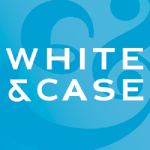A new law aims to bring French transparency and anti-corruption standards in line with international practices. But its provisions have yet to be tested in practice
On November 8 2016, the French parliament passed a law targeting transparency, anti-corruption and the modernisation of the economy, known as the Sapin II law. It entered into force on December 11 2016. Consequently, implementation of compliance programmes within companies will have to be effective by mid-2017.
Although implementing decrees are yet to be released, companies and their directors should prepare for new requirements creating internal compliance programmes and be aware of the sanctions that can be imposed on any company and its directors who fail to implement them.
Compliance programmes and related sanctions
A broad scope
The provisions relating to the implementation of compliance programmes are applicable to any company with (i) at least 500 employees, or belonging to any group whose parent company's headquarters are located in France and which has at least 500 employees, and (ii) annual turnover of more than €100 million ($106.4 million). Presidents and directors of such companies may be held liable for failure to implement compliance programmes.
In our opinion, the two main takeaways of the above provisions are the following:
Firstly, as soon as the French subsidiary of a foreign group has at least 500 employees and an annual turnover of more than €100 million, it has to implement compliance programmes. In addition, any company, notwithstanding its size or its annual turnover, entering into a French deferred prosecution agreement (DPA) may also have to implement such compliance programmes.
Secondly, both the companies and their presidents and directors will be held liable for failure to do so. In this regard, one question this new legal duty triggers – which isn't covered by Sapin II – is whether the implementation of compliance programmes may be delegated to a senior manager or must remain under the supervision of the company's president or director.
A new anti-corruption agency and sanctions
The Sapin II law makes the implementation of compliance programmes legally binding for affected companies. This appears to be inspired by existing laws and regulations relating to anti-money laundering and the fight against terrorism. As part of this, Sapin II establishes a French anti-corruption agency (Agence française anticorruption or AFA) which will control the implementation of compliance programmes within companies.
French banking and financial markets regulation enables both the Prudential Supervisory Authority and the Financial Markets Authority to conduct on site controls. Similarly Sapin II strengthens what is called ex ante regulation.
|
|
The new law brings French criminal law in line with anti-corruption legislation in other jurisdictions |
|
|
To fulfil its mission, the AFA will have the power to obtain any document or information on the company's premises. Its officers may also communicate with any person whose cooperation seems necessary, in a way of ensuring confidentiality.
One of the main issues relating to ex ante regulation is the respect of the rights of the defence by French regulators during their on-site controls. Under Sapin II, where officers of the AFA are on a company's premises, will the company have the right to be assisted by its lawyers? Similarly, where officers of the AFA decide to hear people whose cooperation seems necessary, will the individual(s) have the right to be assisted by a lawyer during the hearing?
Sapin II doesn't provide any answer to these questions. If one looks at what other French regulators do, there are concerns that the right to be assisted by a lawyer during on-site controls will be ignored.
Following its control, the agency reports on the company's compliance programme and, where necessary, outlines recommendations for improvement.
Where a company fails to implement or to improve a compliance programme, the agency may either issue a warning or impose sanctions through its sanctions committee. These include:
a fine on any director of up to €200,000; or
a fine on any company of up to €1 million.
Any decision issued by the agency can also be made public.
Consequently, the rationale for implementing compliance programmes is twofold. It is a legal requirement because the amount of the fines which can be imposed on both companies and their directors are huge. It is also reputational since the decisions taken by the sanctions committee of the anti-corruption agency may be made public. In this last respect, financial markets and investors attach a growing importance to the ethical and commercial reputation of a company. Therefore, the implementation of compliance programmes is particularly important to avoid potential adverse publicity.
In addition, the publication of a decision rendered by the sanctions committee may constitute a signal for foreign regulators and thus trigger investigations by the latter. It's worth noting that the AFA will not have to prove any acts of bribery to assess whether a compliance programme has been fully implemented. This means that a company and its directors could be sanctioned where no criminal act has been perpetrated.
New legal requirements for compliance programmes
The Sapin II law compels companies to set up the following eight measures and procedures as part of their compliance programmes:
a code of conduct defining and illustrating the different types of prohibited behaviours, notably bribery or influence peddling;
an internal system of alerts designed to enable employees to report any violations of the above code of conduct;
risk mapping, which will be regularly updated and is designed to identify, analyse and rank the company's exposure to any risk related to bribery;
an assessment of clients, providers and intermediaries in light of the risk mapping;
accounting controls designed to ensure that the company's books and accounts are not used to conceal bribery acts or influence peddling;
training for managers and employees exposed to the risks of bribery and influence peddling;
disciplinary sanctions against employees in case of violation of the code of conduct; and
internal control procedures to assess the efficiency of the compliance programme.
In light of the above, although many companies have already implemented compliance programmes, notably those falling under the scope of the Foreign Corrupt Practices Act (FCPA) and the UK Bribery Act, the introduction of this new, binding framework is a good opportunity for companies and their directors to update and adapt these programmes to the French legal landscape to avoid any future sanctions.
Indeed, the mere transposition of an existing compliance programme to a French subsidiary of a foreign group is not recommended since there are specific procedures to be followed under French labour law when implementing such a programme.
New criminal offence related to bribery, broader jurisdiction and French DPAs
Beyond the implementation of compliance programmes and the sanctions for failing to implement them, the Sapin II law introduces a new criminal offence of influence peddling of foreign public officials, widens the jurisdiction of French criminal courts and creates an alternative procedure to criminal prosecution.
A new criminal offence
Prior to the Sapin II law, influence peddling of foreign public officials was not punishable under French criminal law. The new law therefore creates a new criminal offence that brings French criminal law in line with anti-corruption legislation in other jurisdictions – which was the wider aim of the Sapin II law.
Sapin II makes any company or individual criminally liable if it offers a donation, gift or reward to induce a foreign public official to abuse his influence with a view to obtaining employment, contracts or any other favourable decision from a public authority or the government.
The offence is punishable by up to five years imprisonment and a fine of €500,000.
A broader jurisdiction for French criminal courts
The Sapin II law has several significant features. Firstly, it gives extraterritorial effect to French criminal law. French courts will be able to prosecute French citizens committing acts of bribery or influence peddling abroad even without any complaint filed by the alleged victims, and regardless of any official denunciation by the state where the offence was perpetrated. In addition, French courts will be able to prosecute foreigners residing in France for acts of bribery and influence peddling committed abroad. This extension aims at sanctioning foreign directors of companies subject to French law.
Secondly, the law provides that the public prosecutor will no longer have the sole power to initiate the prosecution for bribery of a foreign public official. Following the entry into force of Sapin II, other associations fighting corruption will be able to file a complaint with an investigatory judge to trigger such prosecution. In doing so, the Sapin II law aims at widening the number of prosecutions in an area where the OECD recently criticised France for its lack of enforcement.
In doing so, Sapin II also aims at making France a privileged jurisdictional forum for the prosecution of criminal offences related to bribery. Today, this role is primarily fulfilled by the US and the UK. As a consequence, issues related to double jeopardy may arise where, for instance, US and French courts will both consider having subject matter and territorial jurisdiction.
The efficiency of Sapin II will therefore also depend on the reaction of US and UK jurisdictions.
The French DPA
The above mentioned provisions strengthen French criminal law to fight against bribery and influence peddling. Similarly, the creation of the judicial agreement in the public interest – which has been largely compared to the DPA under US law – is also designed to improve the enforcement of criminal law in this field. Indeed, this agreement can be offered to any legal person suspected of having committed bribery, influence peddling and/or laundering of the proceeds of tax fraud, at the initiative of the public prosecutor or the investigating judge depending on where the criminal procedure stands.
Where such an agreement is settled, the fine imposed on the company may be up to 30% of its average annual turnover within the last three years at the time the offence was committed. In addition, the company will be compelled to implement a compliance programme under the control of the anti-corruption agency for three years. Notwithstanding any settlement, the representatives of the company may still be held liable for the offences committed.
The judicial agreement in the public interest will have to be validated by the president of tribunal after a public hearing but this validation will not have the effect of a sentencing judgment.
It is worth noting that this agreement is applicable to current criminal procedures. In this respect, the first judicial agreements in the public interest which are being currently negotiated between prosecuted companies and the financial prosecutor will set the tone for the forthcoming negotiations and will determine the credibility of this innovative tool.
The French DPA has the same objective as the provisions widening the jurisdiction of the French criminal courts, ie competing with the US and the UK to become a privileged legal forum for the prosecution of criminal offenses related to bribery. Yet, if the first negotiations between prosecuted companies and the financial prosecutor fail or if the outcome of such negotiations remains very smooth for companies, the French DPA will suffer a lack of credibility vis-à-vis the US and UK, which in turn, may not hesitate to prosecute companies for the same facts.
By White & Case partner Ludovic Malgrain and associate Arthur Merle-Beral (Paris)

